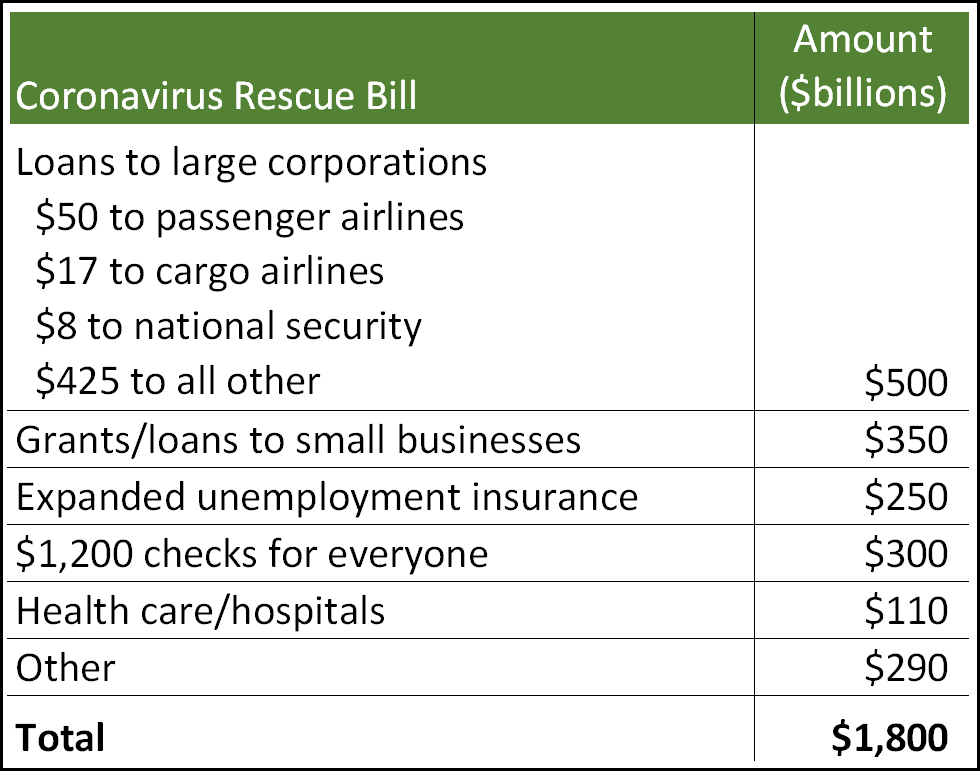It is remarkably difficult to get precise details about the coronavirus rescue bill that’s currently stalled in the Senate. But here are the main pieces:

The negotiations over this bill have been almost a parody of modern American political polarization. Republicans cared only about the loans to businesses and the flashy $1,200 checks for all Americans. Democrats insisted on unemployment insurance replacing 100 percent of income; money for hospitals; and making the $1,200 checks equal for everyone.
Republicans mostly caved in on the Democratic demands, but their price was an increase from $200 billion to $500 billion in the loans for big corporations. You might wonder why there was a price for this stuff. Why did Republicans have to be talked into it in the first place? There was some muttering about not trusting the states to disburse the unemployment insurance money, but in the end it was just because they’re Republicans. Putting corporations first is in their DNA or something.
Oh, and the $500 billion loan pool would be under the control of the Secretary of the Treasury and would have virtually no strings attached. It’s just a giant slush fund that the Trump administration can do anything with. Does anyone think for a second that Trump wouldn’t use this as leverage to help his friends and punish his enemies? Of course he would.
This was the straw that broke the camel’s back. Democrats were willing to vote for the loan pool, but they weren’t willing to make it a Trump slush fund. Even West Virginia Sen. Joe Manchin, who’s conservative enough that he could pass for a Republican most of the time, was apoplectic: “They’re throwing caution to the wind for average workers and people on Main Street and going balls to the wall for people on Wall Street,” he said.
So the bill failed its first vote. Negotiations will continue on Monday.


















